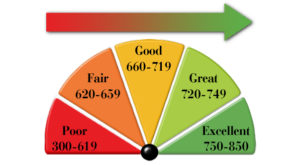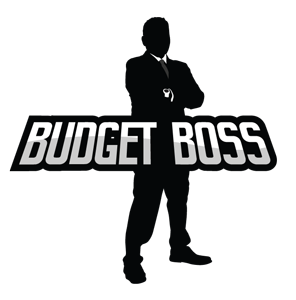Monday, March 18, 2019
10 Terrible Pieces of Financial Advice
I recently posted a question to my followers and asked them to name the worst financial advice they ever received. It was like a tornado of responses over the next few days. Over 1,000 people gave an answer to that question. Seems that bad financial advice is rampant, and no one is immune to it. I felt it necessary to get in on the conversation and discuss some of the doozies I have heard over the years. Today I give you 10 Terrible Pieces of Financial Advice that you should take heed to. Break out a pen and paper folks and let’s get started.
1) The myth of good and bad debt
I will admit that some debt is just plain terrible and others not quite as terrible. Sure, a payday loan is insane when you compare it to mortgage debt. The major problem with categorizing different forms of debt as good and bad is that it normalizes them. It is like saying well sure I might be an alcoholic, but at least I don’t use heroin. The truth about debt is that it prohibits you from being the one thing that will make you wealthy, an owner. When you are an owner, you have acquired wealth. That is not the case when you are in debt. Having a mortgage means you are not yet an owner. You are on your way to being one but are not yet. Sadly, having consumer debt means anything you do own is in jeopardy. Being debt free should be all of our mantras and never allow being in debt to be normalized.
2) Having money in cash is stupid
I hear this one quite often. If you have money sitting in cash, you are losing out. My question is this: Losing out on what? The pathetic interest rate that’s given to you from the bank? I think where many people go wrong is that they overcomplicate their lives. I would never suggest keeping your retirement money in cash if you are years away from it. Nor would I recommend keeping any money in a tax-efficient vehicle in cash, think RRSP, TFSA, IRA, Roth IRA, 401K. Those vehicles give you tax-deferred growth, so take advantage of it. What I would highly recommend is always have some cash on the sidelines as a buffer. This can be your emergency fund, your slush fund, your peace of mind. I have a decent amount of money in cash for two specific reasons: In case I need fast cash and to take advantage of opportunities. I do not care that the interest is minimal. It is my hedge against disaster and market fluctuation. I sleep better at night with it there and that to me is worth it.
Download you Monthly Finances Worksheet – Free from Budget Boss!
3) Credit score is everything
I think we all need to understand what a credit score is. All it is for you is a measuring stick of how attractive a borrower you are. It doesn’t mean you are financially fit. It doesn’t mean you are rich. It certainly doesn’t mean you have achieved any financial goals. It just means that you practice good borrowing habits and pay your bills on time. What do you get for paying your bills on time? More bills next month! Yay, adulthood! Now, good credit is important for when you must borrow as it can get you a lower interest rate on things like a mortgage. It is simply one piece of a very large pie called your financial picture, not the be all to end all.

4) Leverage is no big deal
Leverage is borrowing to invest. I would recommend using extreme caution when you borrow to invest. The reason is quite simple. If the investment goes sour, you also have a bill waiting for you. Using home equity to invest scares the crap out of me. To me, the pinnacle of financial freedom is owning your home outright. That last payment must feel like you won the World Series and Super Bowl on the same day. Why mess that up by prolonging the task. The internet is full of horror stories of leveraged investments. Please, please, please exercise extreme caution when asked to use leverage.
This Guy Lost $200M of his Client’s Money… Who’s to Blame? – Budget Boss
5) Your home is a bank account
Along the lines of the last point, using your home as a bank account is bad business. In fact, the idea of your home as an asset can be troubling as well. Sure, it has a value and that value can be recouped. The problem is that the value is only realized when you sell. We need to understand that you will always need to live somewhere. Whether it is renting, owning your home, a long-term care facility, or eventually in the ground. The asset of your home will be used to transition these moves. It is possible to sell your million-dollar home and live in a bachelor pad, but would you? Delaying paying off your home puts your housing in a precarious position. Why you should not use your home equity as a bank account is because you do not want absurd housing costs when your income stops, ie. retirement. Chances are you will not be able to afford it.
The Only 4 Reasons to Use Home Equity Loans – The Motley Fool
6) Renting is throwing money away
More on the idea of housing. A common myth is that if you rent, instead of owning, you are throwing away money. That could not be further from the truth. Of course, ideally, we all would have a paid off home to live in. The problem for some is convenience. For me, I am rarely home, and I do not have time to make repairs, landscape, and do the general upkeep a home requires. Also, plenty of costs associated with owning a home are “throwing away money.” Home insurance is a big one, property tax, maintenance, excess utility bills, and the list goes on. I spend nothing on any of those costs every month. Now I am not trying to dissuade people from owning a home, as I think it is a key part of most financial plans. I also do not think renting is a picture-perfect situation. Both have positives and negatives. The key is to find the right situation for yourself. BOTH owners and renters need to save money. Both need to strive to be debt free and both need to invest for the future. If you are renting just know that housing costs later in life could come back to you, so plan accordingly.

7) Whole life insurance as an investment
I sell whole life insurance. I do not sell much of it, but in the right circumstance, it fits well. The key component of whole life insurance is right in the name, INSURANCE. While it does grow over time, which is nice, and it does have cash value, which is also nice, you will not be amazed by the values. It grows conservatively and steadily. If someone recommends this as a retirement savings vehicle, run for the hills. At best, it could be a supplement to your retirement savings. What it does do is nicely transition money to the next generation, you know, like insurance. What it also does is cover final expenses like burial, estate taxes, and debts. Know at its core that it is insurance, not an investment. The growth is nice, but don’t focus on that.
Who Needs Whole Life Insurance Coverage? – The Simple Dollar
8) You can wait to save for retirement
Sure, you can also wait to get the growth on your leg checked out, but it doesn’t mean you should do it. Why wait is the question? Life will always get in the way. School, work, kids, friends, health, all get in the way of saving money. There will always be something you can say so you can delay the inevitable. The point is that by waiting you are losing out on the back-end compound interest. There are some serious growth years when you hit the 25-35-year mark of saving and investing. You will want to take advantage of those if you can and that only happens by starting early, even if it’s small. Rome wasn’t built in a day and neither will your retirement portfolio.
9) It’s too late to start saving
Okay, pretend like you didn’t read the last paragraph. Cough, cough. Yes, starting earlier is always better, but it is never too late to get started. The difference is expectations. If you want a certain level of savings, you will have to save a certain amount. That much is a given. Starting later just means you will have to save a higher percentage of your money for the future, but it is doable. Any savings brought into retirement is a good thing. Any debt brought into retirement is a bad thing. No matter your age you can do things that will make your future brighter. I meet people who are 35 and think its too late. I also meet people who are 65 without a penny and think everything is fine. “ABS” folks, Always Be Saving!
Your Retirement Checklist, at Any Age – Budget Boss
10) College is for everyone
I think recent years have dispelled this myth. College is important, but it is not for everyone. Basket weaving 101 won’t get you anywhere. I think it is important to make the decision to go to post-secondary education with as little emotion as possible. It should be thought of as a business decision. The business of your future. Be cool, calculated and precise. I highly value a university degree and think it is a great accomplishment. I also do not believe it is a guarantee to anything in life. Like with work, you must strive for more, work hard and be diligent. A “C student” in high school is about the same value as a “C student” in university. Both will come out with about the same job prospects and earning potential. If you are wary about going to college, maybe take a year or two off and save some money. You might find a new drive to go or maybe you’ll find something else worthwhile instead of going. Time is only wasted if you spend time wasting it. Profound, I know.
Bad advice is everywhere. How you avoid it is by understanding yourself and attempting to understand the world around you. While you will never be able to avoid bad advice, you can mitigate its effects on your life.
“I do not live on false promises. I cannot afford to live on bad advice.” – Robert Kiyosaki

Want to improve your Finances? Click here to Book your meeting with the Budget Boss!
Email – joe@budgetboss.ca
Follow Budget Boss on – Facebook LinkedIn Twitter Instagram Pinterest Quora

